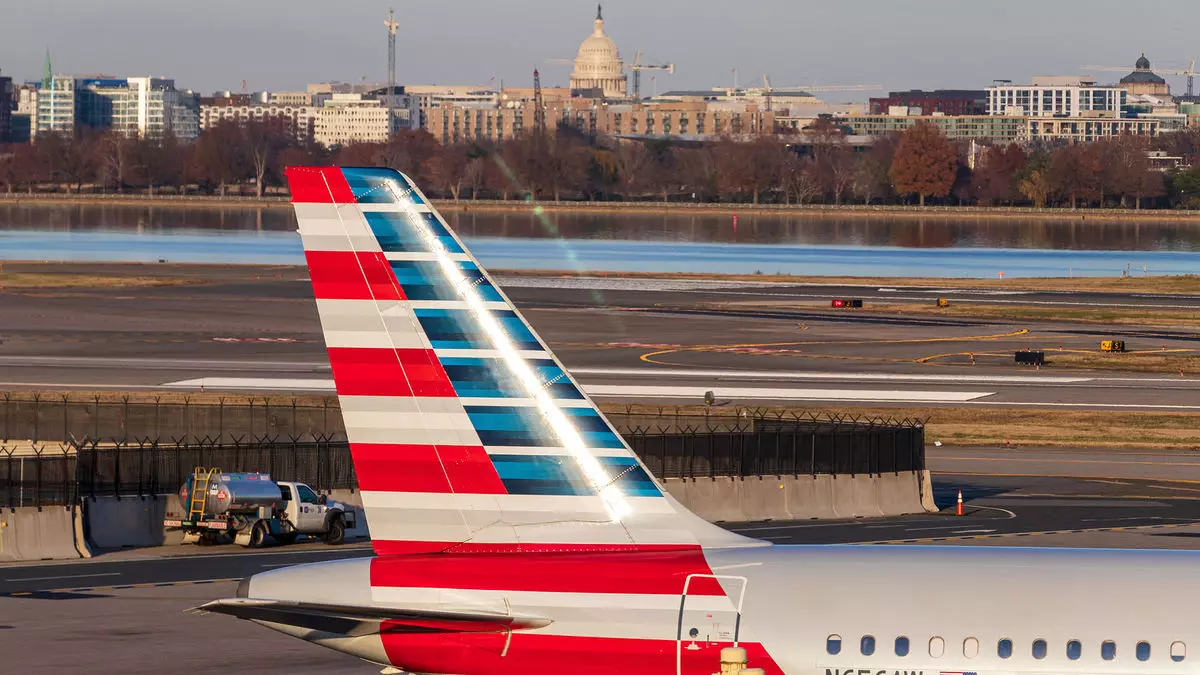In a critical examination of American Airlines’ recent corporate business endeavors, it’s clear that a misguided strategy aimed at enhancing direct and New Distribution Capability (NDC) bookings significantly alienated travel agencies and corporate clientele. This shift, pursued through aggressive measures in 2023 and early 2024, inadvertently scaled back conventional indirect bookings that have historically been a cornerstone of revenue generation for the airline. The fallout from this flawed direction manifested in a staggering 11% decline in its share of indirect U.S. bookings during the low point of the second quarter of 2024—a situation that must serve as a poignant case study in the perils of alienating key partners in the travel ecosystem.
Faced with dwindling revenues from a sector that accounted for a hefty $14 billion in revenue in 2023, American Airlines halted its aggressive pursuit of direct bookings in May 2024. The airline’s leadership, particularly CEO Robert Isom, has underscored the importance of restoring partnerships with travel agencies and corporate clients. Evidence of recovery has already begun to surface, reflecting a 10% deficit in indirect bookings share by the third quarter—an improvement from the previous drop. This resurgence was attributed not only to a strategic pivot back to traditional sales practices but also to a renewed engagement with travel agencies that had felt disregarded.
Isom’s assurance of a gradual return to full revenue from corporate channels indicates a long-term commitment to mending relationships. The airline anticipates a complete restoration of its corporate revenue by the end of 2025. Such aspirations reveal an understanding of the critical nature of collaboration with travel partners for sustainable growth.
American Airlines has proactively sought to rebuild its partnerships by increasing the number of agreements with significant corporate and leisure travel agencies. As outlined by chief strategy officer Steve Johnson, the road to re-engagement hasn’t been entirely smooth. Agencies, initially livid over American’s shift in focus, have now expressed an appreciation for competition in the sector, which highlights a potential silver lining in the fallout from earlier strategies.
Amidst this recovery, Johnon’s leadership has been pivotal. The airline’s swift actions—restoring fare content in Global Distribution Systems (GDS), enhancing sales staff, and bringing back favorable terms for travel agencies and corporate clients—have collectively aided in mending fences. Such measures not only satisfy the immediate needs of affiliates but also signal a commitment to collaboration that could solidify American’s standing in corporate travel.
The financial landscape for American Airlines took a less favorable turn last year, marked by significant operating losses. However, the third quarter of 2024 represents a turning point. The company reported operating revenue of $13.6 billion, a marginal increase, showing resilience amid previous losses. This figure exceeded analyst expectations, reflecting a slowly recovering market and a more effective sales strategy.
In tandem with rising revenues, the strategic decision to augment the sales staff by 20% and re-adopt incentive models is a significant indication that American is not only aware of its prior mistakes but is actively working to rectify them. The $1.5 billion revenue hit projected from lost corporate business attempts to pivot towards NDC bookings is tangible proof that quick, aggressive shifts without partner consideration can have long-lasting financial repercussions.
The transformation of American Airlines’ corporate strategy serves as a cautionary tale, illuminating the importance of preserving relationships with travel agencies and recognizing the value of indirect booking channels. As the airline moves carefully towards recapturing lost revenue and restoring partnerships, it must remain vigilant in its efforts to maintain this momentum. The journey towards full recovery will require persistence and a reaffirmation of its commitment to the corporate travel segment. As stakeholders await the unfolding of these developments, American Airlines demonstrates that flexibility and adaptability are essential in an ever-evolving market landscape.


Napsat komentář